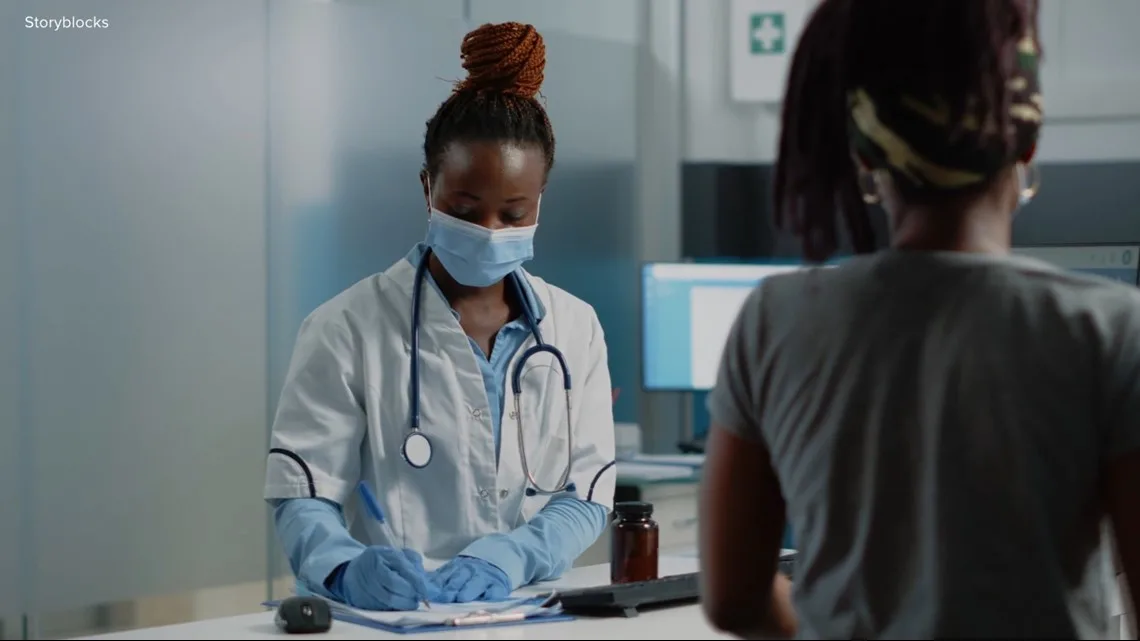
According to the CDC, Black women experience higher rates of heart disease, coronary disease and stroke deaths when compared to white women in the U.S.
CHARLOTTE, N.C. — While heart disease impacts hundreds of thousands of lives each year, everyone has their own story of how it impacted them directly or indirectly.
Over the course of three days in mid-April, Tara Robinson suffered three heart attacks.
“Heart disease doesn’t care if you’re slender, if you’re rich, if you’re poor,” she said.
According to the CDC, Black women experience higher rates of heart disease, coronary disease and stroke deaths when compared to white women in the U.S.
“I’m the strong Black woman,” Robinson said. “I think I’m the poster child for it. That’s definitely part of why I had my heart attacks because I internalized stress so much.”
Robinson is the founder and CEO of the Black Heart Association. The nonprofit is partnering with the CDC Foundation’s Live to the Beat campaign. The new initiative is called the Heart2Heart Challenge.
The goal is to help Black women protect their heart health.
“In that challenge, we are asking for three things: One is to make a commitment to take one small step, and that one small step can be walking every day,” Director for CDC’s Office of Health Equity Dr. Leandris Liburd said.
The self-care routine also includes finding ways to reduce stress, keeping track of your blood pressure and cholesterol, and having a support system.
“We can reduce this burden of heart disease with good medical care and also by making good lifestyle changes,” Liburd said.
Changes that can also prevent a stroke.
A new study from the American Academy of Neurology shows Black Americans have strokes at higher rates and younger ages than white people. The CDC said societal factors like structural racism and discriminatory economic policies lead to these disparities.
Medical Director Neurocritical Care Unit at Novant Health Dr. Laurie McWilliams also points to social determinants.
“No one is actually taking that time to have that discussion to say, ‘What are you actually eating?’ and ‘Do you understand that this type of food has increased carbs that can keep your blood sugar elevated?’” she explained.
When it comes to medical professionals, McWilliams believes something can be done to overcome that disparity among Black people.
“I think it’s taking the time to get to know your patient,” McWilliams shared.
The North Carolina Department of Health and Human Services announced it will host a live fireside chat and tele-town hall on Tuesday, Feb. 20 from 6 to 7 p.m. on NBDHHS’ Facebook, X and YouTube accounts. Doctors and advocates will discuss how to support and improve heart health as well as prevent and manage heart disease.
Contact Nick Sturdivant at nsturdiva1@wcnc.com and follow him on Facebook, X and Instagram.
WCNC Charlotte is committed to reporting on the many issues facing the communities we serve. We tell the stories of people working to solve persistent social problems. We examine how problems can be solved or addressed to improve the quality of life and make a positive difference. WCNC Charlotte is seeking solutions for you. Send your tips or questions to newstips@wcnc.com.


